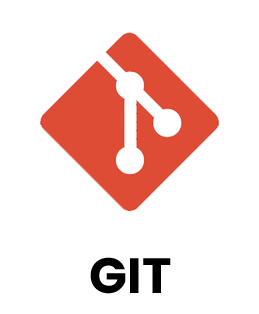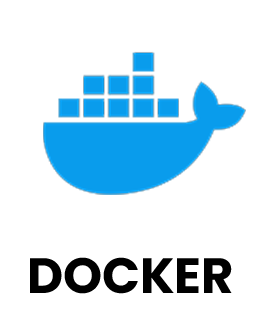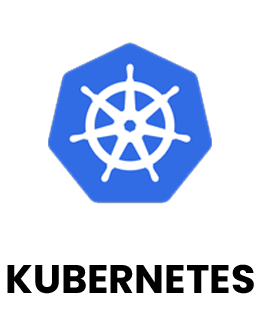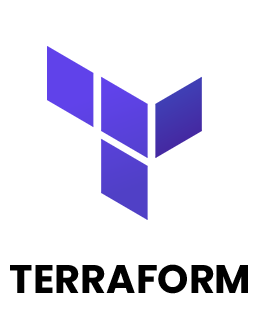With the DevOps Training, you understand the basics of how IT operations and development work together to constantly examine the development of software, so that end product users obtain top-quality products. You will be trained in communication, cooperation, scripting, coding, automation, and DevOps. The DevOps certification Course in Ahmedabad is valuable since it increases your labor market demand. DevOps is responsible for the quicker deployment of software and other important benefits. In DevOps tools like Nagios, Team City, Docker, Git, Bamboo, Jenkins, and CHEF you will get expertise from your professional graph. DevOps training will assist you in learning the DevOps and mastering software development features like operations, continuous integration, continuous delivery, construction, test and deployment automation, etc. You learn the DevOps tools of Git, Puppet, Jenkins, Chef, SVN, ClearCase, Maven, Ant, Docker, Ansible, Nagios, and more throughout this Online DevOps Course. In this course. Obtain the best course from authorized mentors in DevOps.
Additional Info
Intro of DevOps :
DevOps is often a source of confusion for people. As a shorthand for "development" plus "operations", DevOps is the term used for this phenomenon. At all stages of the creation process, it is a method that provides efficient communication and cooperation between the development and IT operations teams.
How does DevOps solve problems?
Software development, testing, deployment, management, and maintenance will be more predictable, scalable, flexible, and secure through this method.DevOps supports Agile development methodology and shares many of its values, including continuous improvement, rapid delivery, and smooth communication. Agile and DevOps are therefore perfectly compatible. The development and operations of DevOps environments usually follow the same methodologies. The following are some of them :
- Continuous integration, continuous delivery, and continuous deployment (CI/CD) tools, while emphasizing the automation of tasks.
- The use of real-time monitoring, incident management, configuration management, and collaboration platforms to support DevOps adoption.
- Including cloud computing, microservices, and containers in conjunction with DevOps methods.
Among the many methods of meeting business needs through IT projects, one of them is the DevOps approach. In addition to Agile software development, DevOps can coexist with ITIL and Lean initiatives; project management directives, such as Six Sigma; and other approaches.
In some applications professionals’ opinion, DevOps should include business (BizDevOps), security (DevSecOps), and other things rather than suffice as just a combination of Dev and Ops.
Key principles of DevOps :
Depending on the company’s goals, processes, and even culture, DevOps implementation may differ. We can distinguish a few of the underlying principles of DevOps that most teams are guided by. We to strive to incorporate the following elements into our customers’ development workflows when incorporating a DevOps culture :
- Communicating, building mutual trust, sharing skills and ideas, and solving problems in a collaborative environment.
- The creation of an inclusive culture in which all team members are responsible for the results, with no finger-pointing between “Dev” and “Ops” experts.
- Continuously improving the product quality, cost, and speed of delivery through customer feedback and changing technologies.
- Enhancing efficiency and reliability of the development and deployment processes by automating where possible.
- Fulfilling changing customer needs with a customer-centric approach and short feedback loops.
- Creating a climate where failures become new opportunities by learning from them.
How does DevOps work?
Known as DevOps, it is a methodology for enhancing work during every stage of software development. Several steps comprise a DevOps process, such as planning, coding, building, testing, releasing, deploying, monitoring, and re-planning, which restarts the loop as feedback is received.
According to DevOps, software has to meet user requirements perfectly, be deployed without errors, and run optimally the first time. Culture and technology work together to help organizations achieve this goal.
As part of aligning software to expectations, stakeholders and developers communicate, and developers implement small updates independently of one another.
Code is moved between development and deployment steps using CI/CD pipelines and other forms of automation. They can enforce policies to ensure that releases meet standards and review changes immediately.
DevOps Engineer Job Description: Roles and Responsibilities :
The roles and responsibilities of a DevOps engineer mix technical and management aspects. To successfully integrate different functions in a coordinated manner and meet the customer's expectations, excellent communication and coordination skills are essential. Several responsibilities fall under the DevOps engineer's remit, including managing operations concurrently with wearing a technical hat.
Some of the core responsibilities of DevOps Engineer include :
- Keeping track of the project's KPIs and understanding customer requirements
- Developing, testing, and automating tools, as well as maintaining IT infrastructure
- Participating in project management activities and planning the team structure and activities.
- The management of stakeholders and interfaces with external parties
- Getting tools and infrastructure up and running
- Define and define processes for DevOps operations such as development, testing, release, updates, and support
- You must possess the technical skill needed to review, verify, and validate the software code.
- Fixing the bugs in the code and troubleshooting techniques
- The monitoring and updating of processes throughout the lifecycle for adherence and to minimize waste
- Whenever possible, promoting and implementing automated processes
- Conducting continuous vulnerability assessments and risk management to identify and deploy cybersecurity measures
- Analysis of root causes and incident management
- Communication and coordination within the team as well as with customers
- Making appropriate CI/CD tool selections and deploying them
- Continuously strive for improvement and build continuous integration, continuous development, and continuous deployment pipelines (CI/CD pipelines).
- Coaching and guiding the members of the team
- Keeping track of customer experience and key performance indicators
- Reporting on progress to the customer and the management on a periodic basis
Essential Skills for a DevOps Engineer :
An Engineer who is a DevOps Engineer must possess both technical and operational skills. Some technical skills required for the role of a DevOps engineer are available to Computer Science or Computer Technology graduates. However, the necessary skills for managing the operations usually come from experience or by enrolling in the right programs that will help you progress in your chosen career path.
DevOps tools :
The deployment delivery and integration process can be automated using a few tools. If you are interested in becoming a DevOps engineer, it might be a good idea to get familiar with deployment tools for continuous delivery and for building scripts for customization.
- You can keep track of changes to projects using source control tools like Git, Jira, and Subversion. In this way, the code can be rolled back to any prior version at any time. It's especially useful for finding and fixing new bugs because you can compare a working version of the code with the current version.
Tools that automate continuous integration are used by developers to test changes committed to a version control system, sometimes several times per day. Developers receive constant feedback on their software projects through tools like Jenkins, Buildbot, and Buddy. So you can immediately address problems when they occur, these tools alert you to deficiencies.
Tools for managing teams: Agile Manager and Agile Bench are two of the most popular tools for managing teams. In both, team tasks are managed, statuses are tracked, and schedules are managed.
Visualization tools: With visualization you get a better understanding of your entire system, which makes troubleshooting issues faster and planning for growth easier. Visualizing complex networks, code bases, and infrastructure utilizing Lucidchart can be helpful in facilitating collaboration among team members based across the globe.
Knowledge On Various DevOps Tools And Technologies :
Each stage of DevOps is accompanied by tools that can facilitate it, and each of these tools can be employed within a given stage. Basically, there are four phases
1. Source Code Management :
Codes created and modified by developers are regularly updated. Software used to manage source code stores the code, merges new files with existing ones, and controls the versioning of files. Collaboration among team members is also made easier through this tool. For this purpose, tools such as Git, Github, and Gitlab are commonly used.
2. Configuration Management :
Software and operating system configurations are managed through configuration management. Also, it allows the management of thousands of server configurations. This can be done with the click of a button or with the execution of one command on the management server. Configuration management tools make life easier and simpler by connecting to target servers remotely and pushing configuration changes as needed. Among the configuration management software, Puppet, Chef, and Ansible are the top three.
3. Continuous Integration :
In software development, continuous integration refers to the automated integration of code from different developers. Continuous integration is mainly achieved with Jenkins and Bamboo.
4. Continuous Testing :
By reducing waiting time for feedback after code testings, continuous testing can be achieved. Tests are performed within the development environment using automation testing tools. The most common Continuous Testing tools are Selenium, TestComplete, and TestingWhiz.
5. Continuous Monitoring :
Monitoring continuous performance and downtimes of applications, error logs, etc., can be carried out using continuous monitoring. The main tools are Nagios, Zabbix, and Splunk.
6. Containerization :
Containerization refers to the virtualization of an operating system so that different containers can run different applications on the same operating system. Comparatively, different virtual machines share the system hardware in traditional hardware virtualization. A number of containerization tools are available, including Docker, Kubernetes, and vagrant.
7. Continuous Integration And Continuous Delivery :
DevOps is defined by Continuous Integration and Continuous Delivery, also known as CI/CD. Continually integrating, testing, and deploying all the code created by different developers is called continuous integration and continuous deployment. As for deployment to production, this is mostly automated using scripts.
8. Infrastructure As Code :
A long and tedious manual process was previously required to provision IT infrastructure. In the age of cloud computing and container technologies, developers are able to provision infrastructure using a script. One of the configuration management tools is used to run the required commands and to take care of the configuration management. Application platforms and infrastructure are delivered instantly.
9. Key concepts of DevOps :
The phrase "DevOps" is neither a technology nor a tool, contrary to what most people think. The methodology isn't tied to a strict framework. This means companies can customize the framework as per their standards and adopt the methodology. In DevOps, the goal is to work faster by reducing the gap between Development and Operations teams. By implementing DevOps methodologies, companies can produce quality software more rapidly. All the tools and techniques we discussed above are used to implement this methodology and deliver software products on time.
10. Soft skills :
With the adoption of the DevOps methodology, soft skills play an important role in the IT industry. The majority of companies prefer Agile work methods based on DevOps methodologies in order to produce deliverables faster so that expectations of clients can be met. As a result, soft skills are ever more important when working in the DevOps field.
DevOps Training and Skill Development :
A comprehensive training program has been designed to upskill future engineers in DevOps.
In this course, you will learn about DevOps principles such as continuous integration and continuous deployment pipelines, process automation, configuration management, collaboration, and team management, service and support agility, and become competent in operations management and support agility and make you competent in operations management.
- It is a big advantage to be trained and knowledgeable about DevOps specific tools like Git, Docker, and Jenkins, which will enable you to bridge the skillset gaps and become a DevOps Engineer.
Learners interested in aspiring to senior DevOps positions should take this program. Additionally, there are opportunities to participate in career fairs, prepare them for interviews, and provide membership to prominent job portals, as well as provide essay writing assistance to the learners.








































